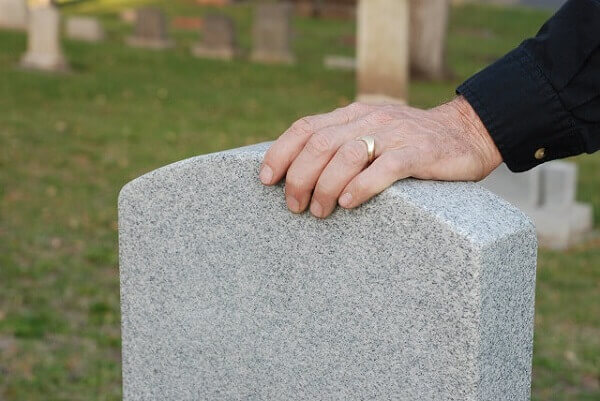
There is no fixed calculation for wrongful death settlements. Instead, damages are determined based on a variety of factors within the case.
If you have lost a loved one in a tragic accident caused by someone’s negligence, you and your family may not only face the emotional turmoil of that loss, but the financial ones as well.
As a law firm that has helped countless clients recover in instances of wrongful death, one of the primary questions our firm hears from clients is how much a case is worth, and how someone can calculate a wrongful death lawsuit. After all, how do you put a dollar value on someone’s life?
Calculating a wrongful death settlement is involved, and various factors must be considered. Also, no two cases are the same. Therefore, what one case receives may not reflect how much you receive in your instance.
To determine how much your case is worth accurately, you need to speak with an attorney. The team at Brett McCandlis Brown & Conner, PLLC, can assist you with your case.
How Vancouver Wrongful Death Cases Are Calculated
Placing a value on a person’s life doesn’t help with a family’s grief, but it will help them financially. Surviving family members will often agree that their loved one’s life was invaluable, and it cannot be replaced. Accurately determining the value of human life using numbers and figures is difficult. No family member can objectively put an amount on their loved one, which is why it is essential to consult with an attorney.
An attorney uses case law, facts, and a team of financial professionals to create value after a loss. Even with that assistance, there is no perfect way to come up with adequate compensation numbers.
In reality, wrongful death lawsuits do value someone’s life by dollars and cents. While life is priceless, the court wants a dollar value so that they know how much the defendant must pay to the surviving family.
Our law firm will do our best to determine the value by looking at economic and non-economic factors.
Economic Factors in a Wrongful Death Case
Economic factors are tangible, estimated losses resulting from a family’s members death. These help determine the amount of money lost through wages, costs of health care, and so forth. Some factors that are assessed while evaluating these include:
- Age: How old was the individual at the time of their death? Age plays a pivotal role in calculations. This is because, when deciding how much income is lost over one’s lifetime, the court needs to consider the age they died compared to the age they should have (or reasonably) died and use that difference to determine any economic losses.
- Health: The health of the individual also plays a role. If someone was perfectly healthy with at least 30 years or more left to work and provide for their family, but their life cut short from an accident, their loved ones would receive a higher settlement than a person in ailing health who maybe had just a few years left.
- Future Earning Capacity and Income at the Time of the Death: To determine a loss of earning capacity or financial contributions to the family, we look at the future earning capacity of the deceased, including potential raises in their career, education that would have secured them a higher paying job, and their total income at the time of their death.
- Education and Training: Any special training, higher education, and job expertise that would have increased their earning capacity is also considered, because that means they would have secured a higher paying position in the future.
- Medical Costs: All medical costs directly related to the accident are calculated into the settlement, such as ambulance costs, hospitalizations, surgeries, after-accident care, etc.
- Funeral Costs: All funeral and burial expenses related to the death (as long as reasonable) are also calculated into the settlement.
- Future Benefits Lost: Future benefits that would have helped family members had the deceased not passed, such as pensions and insurance, are considered economic losses.
Non-Economic Factors in a Wrongful Death Case
Non-economic factors are those that are subjective but still relative. These can include:
- Personal Life Value: This is what the judge or jury would think the deceased’s life is worth, such as how much they would contribute to their family had they not prematurely died.
- Losses without Costs: There is plenty lost when someone passes away that is not entirely financial. For example, a wife will lose her spouse and companionship; children will lose a parent and the guidance/stability that comes from it.
Other Factors Can Influence a Case Settlement Value, Too
It is not just about the factors mentioned above. A case will settle for less than family members deserve when the evidence is not strong enough, improperly presented, or the family had poor representation.
Never accept an offer from the insurance company until you have spoken to an attorney. An attorney will review the facts of your case and help make sure that the settlement you receive in a wrongful death case adequately compensates you and your family for your losses.
An attorney knows what factors the court considers; they also know the evidence required. As the plaintiff, just like any injury claim, you carry the burden of proof. That means you must show the court that the defendant not only caused your loved one’s death, but that they are liable for the damages and that the damage value you have requested is adequate.
Speak with a Wrongful Death Attorney Today
After the loss of a loved one, the last thing on your mind is compensation. However, the sooner you act, the easier it may be to prove your case and get the compensation you and your loved ones deserve.
Start the process by scheduling a free consultation with the attorneys at Brett McCandlis Brown & Conner, PLLC, by calling us today, or contact us online with your questions about our legal services.


